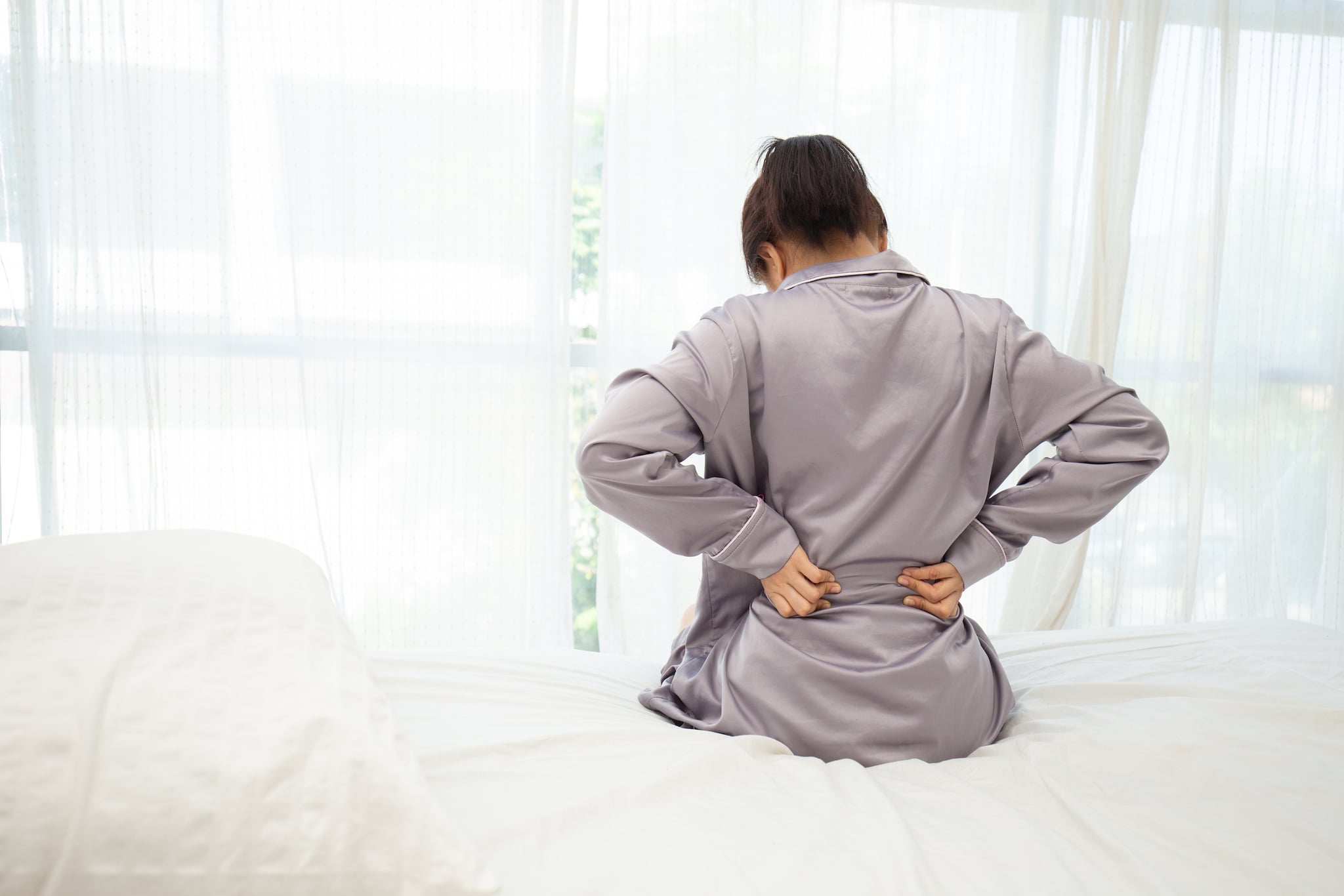

When you think your bed is the culprit behind your regular back pain (or at least making it worse), slumber is rarely sweet and dark undereye circles are the least of your worries.
So is your mattress really to blame for lower back aches and discomfort throughout the entire day?
We chatted with an orthopedic surgeon to find out what you can do to make your bed a more comfortable place.
Do Your Mattress Research
Memory foam, firm, soft, pillow-top - there's a lot to choose from in the mattress department.
The truth of the matter: unfortunately, there isn't a best option for reducing back pain.
"Mattresses are tricky, and they are a big business," Dr. Alan S. Hilibrand, MD, chief of Spine Surgery at Rothman Orthopaedic Institute, explains.
"Sleeping on a good mattress won't eliminate back pain, but a mattress with poor support certainly can make it worse."
While he says that generally more support is better and you should replace a mattress that sags, everyone is different in their needs. Therefore, he suggests people use their experience to guide them to the perfect choice.
Did you love the mattress in your friend's guest bedroom? Ask where they got it!
Your Pillow Might Not Be the Problem
But that doesn't mean your pillow can't help! While Dr. Hilibrand says that pillow issues are commonly associated with neck pain, those with disc herniations, "may benefit from a firmer pillow that they place under their neck and chest while sleeping on their stomach or side to provide sway (lordosis) to their back."
In general, he says that pillows should keep the head slightly lifted above the shoulders without too much flexing forward.
Healthy Sleep Practices Are Key
Dr. Hilibrand confirms that stress can make back pain worse, and poor sleeping habits are especially stressful.
"So, it's important that people with back problems strive for seven to eight hours of sleep per night," he suggests.
"And the quality of that sleep is also important! A cool room with no external light is the best way to fall asleep quickly and sleep soundly."
You should also stash away electronics - that means your phone, computer, and book readers.
Evaluate Your Sleeping Position
It's possible that the position you're sleeping in is causing you some pain - ever woke up stiff and sore because you drifted off to sleep in some odd figuration? In terms of sleeping positions, here's what Dr. Hilibrand suggests:
"People with spinal stenosis (typically those over 50 years) may benefit from sleeping on their backs, maybe with their knees flexed on a pillow," he says.
"For people with disc herniations and/or sciatica, sleeping on the stomach (prone) tends to be less painful. I also advise people who've undergone a spinal fusion in their low back to sleep on their stomachs for the first three months after surgery to help healing."
It's also never a bad idea to speak directly with a medical professional on your back pain and what sleeping tricks could help you best.
Click here for more health and wellness stories, tips, and news.



0 comments :
Post a Comment